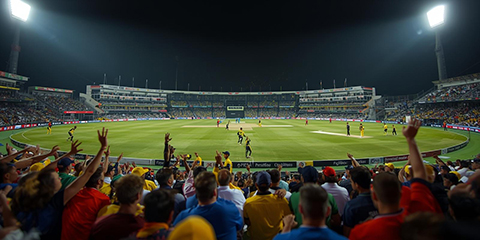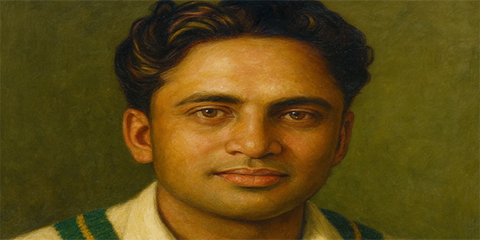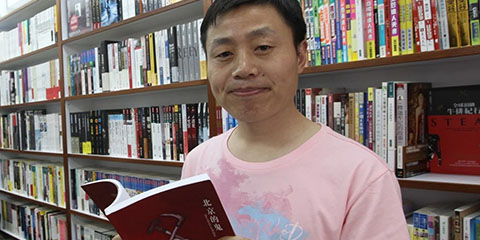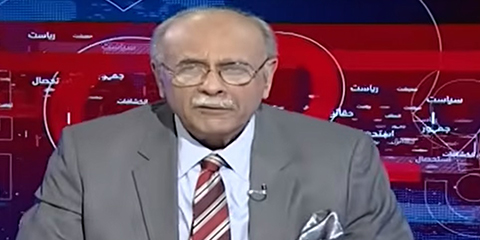From print to digital: How Imran Naeem Ahmad revolutionized Pakistani journalism with JournalismPakistan.com
JournalismPakistan.com | Published 3 months ago | Dr. Nauman Niaz (TI)
Join our WhatsApp channel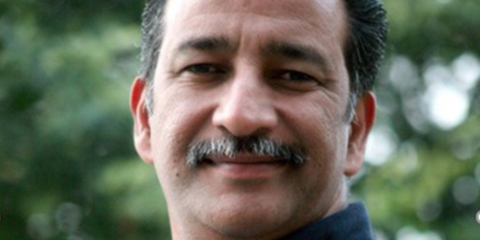
ISLAMABAD — There are occasions, rare yet inevitable, when in the act of writing about another, one finds oneself, the mirror of memory held up by another's face. It was so when I told Imran Naeem Ahmad, that quiet custodian of JournalismPakistan.com, that I had begun a series on those who had carried the flame of our craft when it guttered and dimmed; men and women who built bridges between generations and now stand, reluctantly, as mentors to those of us who once stumbled along in their impact. I told him, almost casually, that after Samiul Hasan Burney, I intended to write about him.
He demurred at once, brusque, embarrassed, as though the thought itself was indecent. 'Why, ' he asked, 'should one write about a man who runs a website? How could such a thing ever be worthy of print?'
To him, it seemed indulgent, without resonance. I brushed aside his refusal. I reminded him that I was his Editor Sports at JournalismPakistan.com, that for four decades his words had stood among the finest this country has known, that to me, whether he wished it or not, he was teacher, mentor, companion, and one of the most remarkable men of my acquaintance.
Still, he shook his head. But I, obstinate as we often are with those most dear to us, chose to overrule him. For there are ties which lie beyond craft, invisible yet binding: the bond of two men who have walked through the furnace of cancer, who have emerged seared but still upright. Survivors in parallel, marked by scars unseen yet eternal. He broke the weight with humour, as he always did when silence thickened. 'Doc, you want to write one on me so I could reciprocate?' he teased. I laughed. 'No, I have had my fill of the spotlight. I long now to learn survival at the edges.'
My own beginning had been tentative, halting, even clumsy. It was 1988–89, Pakistan's tour of New Zealand. I wrote letter after letter to The Muslim, nearly 30 attempts before one at last was judged worthy of print. Looking back now, I wince; the words trudged heavily, the cadence faltered, the prose unremarkable. Yet something in those laboured lines must have stirred, for soon I was invited into the newsroom. Print journalism then seemed like a fortress, formidable and forbidding, guarded by the eminent: Mushahid Hussain, Dr. Maleeha Lodhi, Shireen Mazari, Aroosa Alam, and, consequently, Syed Fahd Hussain. I was asked to write articles. To me, my writings seemed unworthy, but perhaps they glimpsed in my persistence the spark of something yet to come.
The News International Years: Where Legends Were Born
From there, the course bent toward The News International. Dr. Maleeha Lodhi summoned me and led me into the presence of Maqsood Ahmed, Merry Max, the ex-Pakistan cricketer, and the editor of sports back then. He laughed, advised me to stick to medicine. I said I sought only space. 'You can have all the space in the world, if you can make a difference', he replied. Beside him sat Imran Naeem Ahmad, officially second in hierarchy, but in truth the editor in essence. And so I was taken in as a sub-editor. Thus began my parallel existence: medicine by day, journalism by night.
The Art of Mentorship: Shaping Future Journalists
By 1992, I was in England, my days parcelled between lectures, the cool lanes of a swimming pool, and long nights on the Sports Desk, learning the basics of journalism not from books but from Imran's quiet, meticulous hand. He polished my crude offerings, but more than that, he showed me how prose could breathe, when words must pause, when silence carried weight. We became friends. There was Rizwan Ehsan Ali alias Joji, pagemaker, his English fractured, his prose barely serviceable. Yet Imran thrust him into the deep, sending him to cover domestic matches. And we watched with wonder as, word by word, line by line, Joji grew into a journalist of standing, eventually to AP and the great agencies. Such is mentorship: the shaping of destinies unseen.
The Golden Era of Sports Journalism in Pakistan
Those were days when journalism reeked of Benson & Hedges, of smoke curling above desks and stadium benches. Imran and I would sit shoulder to shoulder, two or three packs consumed before stumps fell. We counted them, as though the cigarette ends were not debris but the tally of devotion itself. We travelled in his battered car, christened the Buick for its stubborn fidelity. Fuel was shared, and meals taken at Raja Bazar's clamour or Saddar's Café Rose. There were no luxuries, no affectations. Our only intoxication lay in the rhythm of moving from ground to ground, of covering matches no matter how minor with the zeal of epics. It was work, yes, but it was also joy, that rare, unadulterated joy which belongs to youth, to companionship, and to labour performed with nothing but the heart.
The Master Craftsman: Imran's Editorial Excellence
He made me edit his stories, a ruthless exercise, for his pieces were already immaculate. It was an apprenticeship like no other. Imran wrote with precision, modesty, and poise. He never flaunted his brilliance; if anything, he underplayed it, cloaking his sharpest observations in humility. Yet, when he chose, he could shape through subjects with switchblade-like clarity, reviews that stung but never lied. His name moved in undertones, a presence both revered and faintly feared in the long, echoing corridors of the Pakistan Hockey Federation and the Pakistan Cricket Board. Imran Naeem Ahmad was no seeker of applause; the limelight, with its ruthless glare, he allowed to pass him by. He disdained the fashionable pilgrimage to television studios, shunned the theatre of self-promotion. Yet to those of us who worked in his shadow, who smoked with him in the fading light of press boxes, who saw our fledgling words sharpened and steadied by his hand, he was more than a sports editor; he was a guide, magnetic and true. His guidance came without fanfare, quiet but indelible, and his friendship, like the best friendships, required no declaration. It was simply there: constant, unshakeable.
The Invisible Influence: Shaping Pakistan's Journalistic Landscape
Looking back now, at what we have become, at what journalism in Pakistan has become, I sense his presence still, subtle, almost spectral, in the architecture of our craft. Much of what endures is traced to his unseen hand. He was scaffolding: invisible once the structure rose, but vital to its shape. A survivor, a teacher, a man who chose truth over recognition, discipline over vanity, the permanence of words over the frivolity of appearances.
Cricket as Cultural Institution: Beyond the Scoreboard
There are certain figures in cricket, too, whose influence breathes beyond boundaries, whose legacy is not to be measured in averages, wickets, or records, but in how they transformed the very imagination of the game. Imran Naeem Ahmad belongs in that rare company. He was not a Test cricketer, nor a lawmaker, nor a general in boardrooms. He was something rarer: a lyricist of journalism, an essayist of our games, a biographer of fleeting moments, a writer who lent his timbre to silence as much as to speech. He gave cricket, and indeed sport in Pakistan, a language, not sterile reportage but music, cadenced and humane. His words did not describe; they evoked. Matches became experiences, essays became memories, players became figures out of Shakespeare, touched by tragedy, by comedy, by destiny. And in the sweep of his sentences, sport itself was framed not as pastime but as a cultural institution, inseparable from the pulse and cadence of South Asian life.
The Poetry of Sports Writing: Style and Substance
To write about Imran's style is to write about a sensibility, a particular way of seeing cricket, and indeed life, with an eye at once lyrical and unsparing, compassionate yet discerning. His output ranged widely: biographies, newspaper essays, edited articles, and finalizing sports pages every night. But whatever the medium, certain qualities shone through: an unmistakable lyricism, a deep moral sensibility, and a profound sympathy for the ordinary, particularly for those who played or watched the game outside the glamorous spotlight.
Imran's formative years as a writer shaped the cadence of his cricketing sense and depth. Before the flow of the game consumed him, he wrote extensively, slight reports that were read in cafés and tucked under pillows. That journalistic inclination never deserted him; it became the foundation of his later work. His descriptions of cricket often read like stanzas, compact, musical, rich with sensory depth.
When he wrote of the thwack of the bat or the languor of an evening field shimmering under the Islamabad sun, his language carried poetic flow. He did not simply describe; he evoked. He might sketch the tilt of the Gaddafi Stadium stands with the patience of a miniature painter or capture the shadows gathering on the outfield as if they were metaphors for youth abating, fading away. Unlike reporters who reduced cricket to the statistics of runs and wickets, Imran made it a parable of time and memory. His write-ups were rarely hurried; they lingered, like a batsman marking guard for eternity.
The Balance of Lyricism and Economy
His gift was the balance between lyricism and economy. He could summon the sweep of Faiz and Eliot, yet he rarely lapsed into indulgence. His sentences were deceptively simple, often short, but resonant with echoes of literature and imagery. He favoured clarity over clutter, but within that clarity, he opened entire landscapes of feeling. His evocation of a cover drive by Salim Malik or the last weary strides of Waqar Younis did not need decoration; understatement did the work, the suggestion that in cricket, as in literature, less often carried more. This economy was most apparent in his commentaries. Working in the press, he mastered the art of brevity. He allowed silence to breathe, letting readers hear the hum of a crowd, the long pause of anticipation before a ball. He intervened with words only to illuminate, never to smother. His restraint became his signature, the ability to sculpt silence into drama.
The Humanist Vision: Beyond Statistics and Scorecards
Imran's writing was never just beautiful; it was humane. He possessed a sympathetic imagination that enfolded not only the celebrated stars but also the journeymen, the county professionals, the first-class stalwarts of Pakistan and India, and the nameless spectators on crumbling terraces. His essays drew light upon those who rarely made headlines, the domestic batsman whose career was an unending grind, the groundsman whose roller carried the fate of spinners, the boy at fine leg chasing balls into the hedge.
This sympathy was never sentimental. It arose from a moral vision. Imran was a democrat in temperament, hostile to injustice, to elitism, to racism. He railed against discrimination, wrote with force about the indignities suffered by underprivileged cricketers, and stood by their names when others hedged. Cricket for him was not escape but reflection: a mirror held to the world's inequities. He carried into writing the conviction that cricket demanded fairness, that the game's laws must bend toward justice.
The Literary Voice in Sports Journalism
Perhaps nowhere was his style more visible than in his match reports. From the 1980s into the 1990s, his presence was a constant companion across sports pages. For countless readers, summer afternoons and long Ramadan nights were scored to his write-ups, a voice of ballast and lyricism. His burr, deliberate and unhurried, carried calm. Yet behind it lay richness, a description that transformed his pieces into literature.
He once called a Waqar yorker 'the crack of a whip across the evening'. Upon Imran Khan's farewell, he said: 'He walked away like a general at dusk, his shadow still longer than his men.' He believed sports journalism was companionship. He spoke as though sharing a pot of tea, noting impressions, not handing down verdicts. His genius lay in rendering the ephemeral eternal. A ball bowled, a shot played, a wicket taken, fleeting moments vanished in seconds. But his words froze them in time, turned them into memory. He never hectored, never cluttered, never chased drama. His was writing as evocation, not explanation.
Essays and Reflections: The Full Reach of Style
In his essays and articles, Imran revealed the full reach of his style. He wrote extensively with precision, lifting players out of averages into flesh and spirit. He edited write-ups on cricket, situating the game among the traditions of literature. And his reflective essays on Lahore Gymkhana, on Multan's dry heat, on county summers in Hampshire, blurred reportage with meditation.
A match could lead to a reflection on the architecture of stands, the way light pooled on brick, the continuity of tradition from Shri Kumar Ranjitsinhji to Sachin Tendulkar. A profile of a cricketer might turn into a meditation on class, on labour, on the inevitability of obscurity. He was less a journalist than an essayist who used cricket as his medium, transforming the scorecard into narrative, the match report into elegy. Most striking of all was his elegiac tone. He wrote always with the awareness of time passing, summers fading, innings ending. Cricket symbolised fragility itself: its fleeting joys, its inevitabilities. Even in his praise, there lingered a sadness, that brilliance would fade, that youth dissolved into memory, that no one was forever.
The Elegiac Voice: Writing Against Time
This found full expression in his obituaries. When he wrote of Hanif Mohammad, or later of colleagues, he spoke not only of careers but of seasons of human life. His words carried tenderness that transcended sport; cricket was only the lens through which he glimpsed mortality. Imran's double apprenticeship in sports journalism gave his work its unusual texture. His expression appealed both to the ear and the eye. Sentences had flow; cadences rose and fell like overs themselves. Images abounded: a batsman 'carving daylight through cover,' a spinner unspooling thread upon thread until the batsman was wrapped.
Hockey's Mythical Chronicler: Beyond the Playing Field
And no one wrote of field hockey quite like Imran Naeem. In his hands, the game shed its clatter of sticks and the mundanities of scorelines; it became something more fluid, almost fantastical, a choreography of will and velocity, with players drawn not as athletes alone, but as figures of myth given flesh for a moment on sunlit turf.
Imran did not just report the game; he translated it, from movement into music. The tournaments he covered read less like dispatches and more like journeys through epics: the Champions Trophies, the FIH World Cups, the Asian Games, all found in him not a journalist, but a raconteur, as if he had been placed there not by assignment but by destiny. There was Sydney in 1994, a furnace of heat and colour where Pakistan lifted the World Cup in a victory that seemed to shimmer, even then, with the air of legend. Imran was there, and when he wrote of it, the match did not remain fixed on the field; it rose into memory, and stayed. He walked Olympic avenues in Atlanta and again in Sydney, where sport wore its grandest garments, and still, his prose held its clarity, his pen its reverence. He covered various tournaments from Amstelveen, Netherlands, Rotterdam, and Kuala Lumpur.
Global Recognition: Covering International Tournaments
So vivid was his language, so exact his sense of timing, in both phrase and judgment that multinational companies, recognising the rare magnetism of his craft, often stepped forward to sponsor his journeys. They knew, as readers came to know, that when Imran travelled with a team, he carried more than credentials: he carried a gift. For to read him was not only to understand the outcome but to feel the pulse of play, the sweat and striving, the heart beneath the crest. And that, in the end, is the highest art: to make fleeting things endure.
This combination of sound and image made his writing immersive. One could almost hear the distant appeal, see the shimmer of Lahore dusk, smell the grass of Lord's. His words carried the senses into the page. Imran Naeem Ahmad's style remains singular. Where others recorded, he evoked. Where others judged, he reflected. Where others saw cricket as a sport, he rendered it as philosophy, metaphor, and memory. His style was lyrical but economical, poetic but plain, elegiac yet celebratory. He sympathised with the ordinary, upheld moral seriousness, and gifted the game permanence through words.
A Legacy Beyond Sport: The Timeless Voice
In an age of replays, statistics, and immediacy, his style feels like a relic of another time, when cricket could be narrated as art, when silence was as telling as speech, when words themselves became innings. His legacy endures not in averages or titles, but in the belief that cricket deserves literature equal to its beauty. For those who still read him, or recall his voice, there is always something larger than cricket, a sense of memory, of summers lost, of the passage of time itself. In that sense, Imran Naeem Ahmad remains one of the finest sports writers of his generation.
The Birth of JournalismPakistan.com: A Digital Legacy
Imran Naeem's name belongs to that select company of men who, without spectacle or clamour, have fashioned for themselves a permanence in Pakistan's journalism. He is the co-founder, editor, and quiet custodian of JournalismPakistan.com, a platform which, through his 40 years of craft and care, has become not just a repository of news, but a testament to endurance itself. In times when lesser spirits faltered, when the media industry bent under strain, Imran kept the flame lit, sustaining a site that has become both archive and agora, a place where the restless pulse of news beats on, steady and true.
From Proofreader to President: A Journey Through Pakistani Media
He began without pomp, a junior proofreader at The Muslim in 1984, attending to commas and margins while listening, silently, to the cadences of elder contributors. The newsroom recognised in him more than a proofreader's diligence, and soon the title of sub-editor was laid upon his shoulders. From those modest beginnings, he journeyed outward: Dubai in 1989, Gulf News; then, returning home, he found his place at The News International as it unfurled its banner. There, his decade told itself in many phases: editor, mentor, unionist, sports raconteur, until he left his mark not only on the paper's pages but upon its landscape, presiding as president of the workers' union, and founding the Rawalpindi-Islamabad Sports Journalists Association (RISJA), giving the scattered correspondents and journalists a common cause.
Later came Dawn, then the Daily Times, and with them, the multiplicity of roles: city reporter, communication specialist, editor, consultant. Each designation is just another name for what he always was, a writer whose prose has been praised as 'sharp and stimulating,' and an editor whose switchblade was precise yet patient, improving without ever scarring. His journeys took him far: to UN forums and Red Cross conclaves, to ActionAid projects and Chinese delegations. But no matter the distance or the institution, his compass never faltered: it always returned to journalism as craft, as vocation, as a labour not of headlines but of conscience.
The Continuing Watch: Editing Consultant and Digital Pioneer
Even now, as an editing consultant, he continues his watch, not loudly, not with the trappings of celebrity, but with the same fidelity to words and their weight. Those who read him or were edited by him carry away not just sharpened sentences but sharpened sensibilities. For in every correction lay a philosophy: that journalism is not performance but service, not vanity but witness.
The Personal Behind the Professional: Satellite Town Beginnings
And yet behind the print lies the boy, a boy of Satellite Town, Rawalpindi, where the aroma of curry on a kerosene stove summoned three restless brothers to dinner. Their mother, Farrukh Ahmed, stirred the pot with a wooden spatula while warding off quarrels over chicken leg pieces, promising that another feast would come soon enough. It was there, amidst the clatter of spoons and the contests of marble games, kite chases, and sibling pranks, that Imran's childhood gathered its colours. His brother Ishfaq, quick-eyed, mischievous, remarkable with marbles, led the games and the laughter, while discipline was restored in intervals by a father whose Vespa carried the boys to Saint Mary's Cambridge School. The house at B-598, with its small yard, its proximity to shops and masjid, its playground and kite-filled skies, became their Eden: the theatre of their mischief and their apprenticeship in life.
Family Tragedy and Resilience: The Human Side of Excellence
In families, sometimes fate writes its own cruel hierarchies. One brother scaled the ivory towers of academia, the executive director at the Center for Nano-Technology, University of Illinois at Urbana-Champaign, his name scored in seminar halls oceans away. Another, Ishfaq, marched through the serrated climb of the army, rising to the rank of Lieutenant General, only to be denied the final step, the Chief of Army Staff office that was his by merit, if not by destiny. And then there was Imran, who fought his own battle not on fields nor in classrooms, but within his own body, staring down cancer and emerging, scarred but alive.
Yet life spared him only to remind him of its mercilessness. Both brothers, gone, sudden deaths, like doors slammed shut in the quiet of the night. He mourned them as only one who has shared childhood can, but even in grief, there was no rebellion against fate. He accepted it as pre-destined, as if life had been written long before he breathed it. He did not rage, did not demand answers from the heavens. Instead, he carried their absence like a stone in his chest, mourning not with noise but with a silence that itself became eloquent.
From Childhood Marbles to Newsroom Marble Halls
It was from such beginnings, humble yet alive with play and discipline, that Imran carried into adulthood both the resilience of one who knew restraint and the imagination of one who had often looked towards the Margalla Hills and wondered what lay beyond. Journalism, when it came, was not chosen so much as inevitable; it was the natural extension of a boy who had learned early to observe, to question, to narrate. And so the journey from those childhood marbles to the marble halls of newsrooms was less a leap than a long unfolding.
In this way, the story of Imran Naeem Ahmad is more than the catalogue of posts held and articles written. It is the story of a man who presented the profession not as an adornment but as a responsibility, whose presence in the press of Pakistan has been quiet yet formative. His life has been, in essence, what all true journalists aspire to be: a witness to his times, armed not with trumpet, but with the keyboard that remembers.
The Quiet Excellence: A Life of Service Over Spectacle
In the long history of Pakistani journalism, some names shine by virtue of clamour and applause, and there are rarer names that endure because they asked for neither. Imran Naeem Ahmad belongs to the latter kind: a man who gave four decades of his life to the written word, and did so with the quiet fidelity of one who serves, not one who seeks. He shied from the spotlight because he did not need it; he never competed because he was never insecure. His worth was not measured in the trophies of bylines or in the noise of panels, but in the subtler triumphs, in turning the irrelevant into relevance, in showing pupils how to hear cadence in prose, in watching them take wing and become stars in their own firmaments.
He was selfless in the way great men often are: so generous with his time, so unassuming in his wisdom, that only in retrospect do you realise the abundance you were given. Humble, down to earth, without pretense, he reflected not only his own character but the breed and blood from which he came, honest, steadfast, quietly noble. For me, he was the teacher who took a hesitant hand and steadied it, the mentor who watched me stumble into expression and then smiled with pride as I grew. He stood beside me in moments of anguish, shared laughter in times of joy, and never asked for more than friendship in return.
The Teacher's Greatest Gift: Legacy Through Others
What more, truly, can one ask of a mentor? To be guided, to be uplifted, to be made better, not just as a writer but as a man. Imran Naeem Ahmad has been all of that, and in the telling of his life, one finds not the vanity of a career but the literature of character, a life written, like the finest prose, without excess, without indulgence, yet resonant with truth, with generosity, with grace. In the end, his legacy is not in headlines but in human beings, not in what he wrote himself but in what he taught others to write. And that, perhaps, is the highest kind of immortality.
The Long Innings: Forty Years of Faithful Service
In Pakistan's journalism, where many have sought to dazzle with the brilliance of their own name, Imran Naeem Ahmad moved differently, almost like a cricketer who chose the long innings over the flashing cameo. For forty years, he gave of himself, quietly, faithfully, never reaching for the limelight, never rushing to the centre stage. His journalism was not performance; it was service. He never needed to compete because he was never insecure. He stood apart, not above. He wrote because words were his métier, but more than that, he taught his pupils to see significance in smallness and to elevate fleeting detail into lasting memory.
The Generosity of True Greatness
There was, in him, the generosity of a man who knew that legacy is not built in the framework of one's own work alone, but in the unseen foundations laid for others. His pupils became writers, editors, journalists of standing; he rejoiced in their growth, felt pride not as possession but as kinship. The glory of his life was not that he stood tallest, but that he allowed others to stand taller. A man of modesty and substance, he seemed to reflect an older breed, grounded, gracious, humble in manner but unshakeable in principle. In every turn of his career from the early years at The Muslim, through his long vigil at The News, to his stewardship of JournalismPakistan.com, there was no self-aggrandisement, only sustained devotion.
The Personal Bond: More Than Colleague, More Than Friend
He was, for me, more than a colleague; he was a guide and conscience. I can still recall those evenings spent side by side in smoke-thick press boxes, or the hours bent over galleys that he would return, marked not with pedantry but with a lesson in cadence, in restraint, in how to let words breathe. He took what was raw and made it steady, never harsh, always precise. When I faltered in expression, he steadied me; when I grew into my own voice, he stood in pride, a smile unspoken but understood. It is one thing to have a teacher in craft; it is another to have a friend who stands with you in pain and shares joy without measure. Imran was both.
The Invisible Architecture of Excellence
Such men do not announce themselves with noise. They leave no gilded statues nor monuments. Instead, they live on in the words of those they nurtured, in the sentences they shaped, in the moral fibre they instilled. His is a legacy written not in the bombast of headlines but in the literature of character. He has been scaffolding to many of us, unglamorous perhaps, often unseen, but essential, sturdy, the structure without which we could not build our houses of words.
The Testament of Persistence: 16 Years of JournalismPakistan.com
There are certain creations in the life of a man that outgrow their original blueprints; they cease to be just enterprises and become testaments, quiet epics of the human spirit. JournalismPakistan.com is such a creation. Not just a website, nor only a platform carved from code and content, but a living thing, weathered and shaped by time, held aloft by one soul's unswerving resolve.
When Steve Manuel, with whom he first gave form to this vision, departed for the far shores of America soon after JP's inception, many might have expected the flame to flicker and fall into shadow. But where one hand left the tiller, another clutched it more tightly. What followed was not just stewardship, but something far deeper, a sustained act of faith. For 16 years, Imran has kept JournalismPakistan.com alive, not as one keeps an object preserved behind glass, but as one keeps a garden, tended through storms and drought, hacked at by bitter winds, yet never allowed to perish. It was not just time or money he invested, though both were spent in no small measure. It was something less tangible, more costly: the devotion that works in silence, the hours no one sees, the wearied late nights and unwelcome mornings, the loneliness of leadership when the world has turned away.
Digital Warfare: Defending a Vision Against All Odds
There were days when the winds blew cold, days when legal threats from mighty quarters sought to unmake what he had built, days when unseen hands clawed at JP's digital walls, hacking again and again as if to erase not just data but the soul behind it. There were long lean seasons when finances thinned to threads, when it would have been far easier, far more reasonable, to let it all go, to lay down the burden and walk away. But reason has little to do with devotion.
JP endured, not by accident, not by luck, but by the sheer resilience of will, by persistence that bent and cracked but did not break. Imran carried it forward when many thought it would fall. And in doing so, he discovered that to sustain something over time is no less a creative act than to begin it. For beginnings are brave, but continuance is valiant. Now, as he looks back over the arc of these 16 years, he does not see just a site that survived; he sees a living document of resistance, of belief, of unwavering commitment. JP stands not as a relic, but as a testament: to loyalty, to vision, and to that most human of virtues, perseverance against the odds.
The Deeper Authorship: Beyond Creation to Preservation
When JP first stirred into being, it was not with the clangour of trumpet fanfare or the swelling tide of great capital, but with the quiet, assured step of those who believe in the sanctity of ideas. It began, as all enduring ventures do, in companionship, in the camaraderie Imran shared with Steve Manuel, a friend. JP took its first breath, and with his leaving, the burden of its future, its heartbeat fell upon Imran alone. Yet there was never a moment, not even in solitude, when he believed the flame would be allowed to die.
For 16 long years, seasons of grace, and seasons of grief, Imran kept JP not just alive, but alive in the fullest, truest sense: evolving, speaking, continuing, even when silence seemed the easier path. To say he just invested time and money would be to diminish the truth. He poured into JP something far less replaceable, the soul of resolve, the soft iron of perseverance that does not glint, but endures. Each day demanded not only labour, but belief, belief in the worth of the thing itself, when the world around asked, sometimes cruelly, whether it was worth anything at all.
The Test of Time: Surviving Through Adversity
The road was not softened by favour. There were times when the law loomed darkly, industry giants stirred, threatened, barked in courtroom tongues. There were nights when invisible enemies breached JP's gates, hacking not just code but confidence, seeking to undermine both system and spirit. And always, the slow attrition of funding, the dull ache of digits that did not match the dreams. It would have been easier, indeed, rational, to bow to exhaustion, to close the book and let the years settle like dust. But JP was never a project for Imran. It was, and remains, a purpose.
What kept it aloft, through the winters and the droughts, was not momentum, for that runs out, but resilience, that rarer thing. A quality that does not age with the body, nor depend upon applause. It is persistence not born of stubbornness but of vision, of the quiet conviction that some things deserve to endure. Through days when the servers flickered like uncertain stars, and nights when doubt whispered like wind through an open window, Imran remained. Not heroic, just unwilling to let go of something he knew mattered.
Today, when Imran looks upon JP, he does not see the battle-scarred ledger of a business hardly sustained. He sees something far nobler: a testament to continuity in a world that forgets too quickly. A digital hearth kept burning when others turned away. A work of the mind and heart, not perfect, but persevering. It is easy to begin a thing in hope; it is another matter entirely to carry it forward in silence, through adversity, against forgetting. That, he knows, is the deeper authorship. JP stands not simply because it was built, but because it was borne.
A Legacy Beyond Bylines: The Quiet Immortality
When I look now at what journalism in Pakistan has become, amidst its fractures and evolutions, I see traces of Imran everywhere. In the discipline of a desk, in the clarity of a line, in the courage to tell stories without embellishment, in the quiet endurance of those who refuse compromise. He is there, in the unseen places.
And so the life of Imran Naeem Ahmad, 40 years and more, is best remembered not as a career but as a piece of literature: measured, melodic, sometimes austere, always truthful. He will not be remembered for flamboyance, but for fidelity; not for chasing headlines, but for shaping those who would one day write them. He showed that the truest mentor is not the one who leads from the front, but the one who stands behind, unseen, content to watch his pupils carry the flame into realms he himself chose never to enter.
It is an immortality of the most enduring kind. For in the end, the bylines will fade, the pages will yellow, the archives will gather dust. But the man who gave selflessly, who stood in silence, who taught, who built, who endured, he will remain, like the echo of a well-timed stroke, felt long after the sound has gone.
Dr. Nauman Niaz is a civil award winner (Tamagha-i-Imtiaz) in Sports Broadcasting & Journalism, and is the sports editor at JournalismPakistan.com. He is a regular cricket correspondent, having covered 54 tours and three ICC World Cups, and having written over 3500 articles. He has authored 15 books and is the official historian of Pakistan Cricket (Fluctuating Fortunes IV Volumes - 2005). His signature show, Game On Hai, has been the highest in ratings and acclaim.








